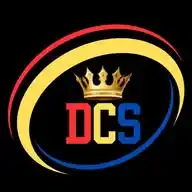
DOBIS CRYPTO SERIES
June 4, 2025 at 08:19 AM
Token Price Stability and Ecosystem Engagement – The Delta Project Approach
In the world of blockchain projects, one of the most pressing challenges is maintaining the long-term stability and value of a token. To combat the risk of sudden price crashes caused by large-scale sell-offs, many projects implement strategies such as long-term token lockups (pledging), vesting schedules, and other mechanisms to limit token circulation.
The core idea behind these strategies is to reduce the available supply of tokens in the market, thereby minimizing volatility and encouraging upward price trends over time. Simultaneously, these projects aim to grow their ecosystems by making their native token the primary currency used within their platforms—essentially becoming the ecosystem’s "legal tender."
While these methods have shown some success in stabilizing prices and supporting ecosystem development, they often fall short in a critical area: user engagement. In most cases, these systems create what we call "zombie users"—individuals who simply hold onto their tokens, waiting for the price to rise so they can sell (usually into stablecoins like USDT), without participating in the platform’s growth or governance.
This passive behavior undermines the original purpose of tokens. Instead of serving as dynamic tools that drive interactions and economic activity within a decentralized ecosystem, they begin to resemble stocks—assets held solely for speculative gain. This lack of meaningful utility and user participation is a major factor behind the stagnation or failure of many crypto projects.
What Makes Delta Different
The Delta Project is taking a fundamentally different approach. Instead of relying on passive holding strategies, Delta will operate a closed MainNet where active participation is the cornerstone of the ecosystem.
In the Delta ecosystem, users will be required to contribute directly to both consensus mechanisms and ecosystem development. This participation won’t be optional—it will be integral to earning and using tokens within the system.
A key element of this design is the Flea Market, a dynamic, decentralized environment where token utility is real, continuous, and required. It ensures that users engage with the platform in meaningful ways rather than simply holding tokens and waiting for price appreciation.
By prioritizing real utility, user engagement, and ecosystem integration, Delta aims to build a vibrant, self-sustaining economy—not just a speculative asset. This model not only encourages users to stay involved but also helps maintain long-term token value by linking it to actual use and contribution within the platform.
#kimdelta #deltaanetwork #mining #learn #explain #innovation
#web3 #blockchain
